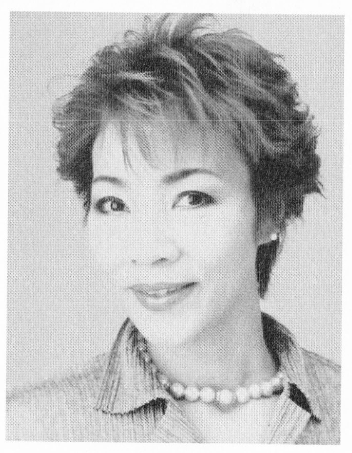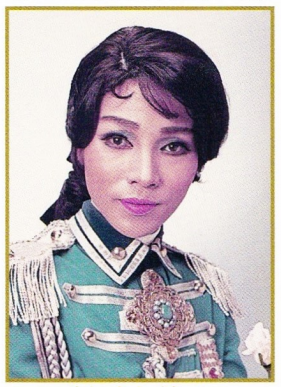This book, which is something of an ‘oral history’ of Takarazuka’s Rose of Versailles adaptations, was published by Ascom in late 2005, and features chronological accounts from otokoyaku who had performed in the franchise from its first origins through the 2001 productions. Since the book is derived from transcriptions of interviews taking place often many decades after the fact, there may be discrepancies between accounts.
Please note that the term appearing through the text as ‘theatre-comic’ is translated from the Japanese term gekiga [劇画]. Although this term is described as applying to mainly male-oriented comics in most English-language sources, this is no longer accurate. The definition of this word has changed to also include sweeping, romantic female-oriented works with Rose of Versailles being arguably the most famous of theatre-comics. Takarazuka even published its own magazine of theatre-comics in the 1970s.
Chapters have been split in two to make them more readable without too much scrolling to reach the explanatory footnotes. Some paragraph breaks have also been added for ease of reading in English. I have also included (or will include when time allows) some images printed in the book as well as sourcing many other archival images to illustrate the text.
Setouchi Miya

1947 – Born on January 15th in Tokushima Prefecture.
1966 – Entered Takarazuka Revue, debuting with The Four Seasons of Japan.
1971 – Performed first lead role in The Little Mermaid
1976 – Played Andre in The Rose of Versailles
1979 – Became Star Troupe Top Star with Star of Antares
1983 – Retired from the Takarazuka Revue with Window of Orpheus
Other notable works:
A Small Flower has Bloomed, Lover’s Suicide, etc.
Post-retirement activities:
Lived in the United States for 1 year, then returned to Japan. As well as operating Sunflower Dance Studio in Tokushima, she continues to work on the stage, performing in many adaptations of works by Chikamatsu Monzaemon including Sarara Yukizare no Asu Kaori he, Osan Mohee, Chikamatsu Musubarete Futatabi. She has also starred in Kamigata Hanabutai. Other appearances include Sakura Matsuri Tanuki Goten, and her one-woman show Chikamatsu Fantasy. In 2006 she will perform in Les Miserables (Chuunichi Theatre, Nissay Theatre, etc.).
Andre was trembling with nervousness
The Rose of Versailles… I was never so nervous about a show before.
It’s now almost 30 years since Berubara was first performed in Takarazuka, right. It started with Moon Troupe for the very first one, and the first cast was Haruna Yuri as Oscar, Asou Kaoru as Andre, Dai Takiko as Fersen, and Hatsukaze Jun as Marie Antoinette.
At that point, I was in Flower Troupe, but by the time it was decided that Flower Troupe would be putting on Berubara next, I had already been transferred to Moon Troupe… In Flower Troupe, Anna Jun and Matsu Akira ended up starring in Berubara, and it just kept passing me by (laughs).
To be honest, looking back on it now, when Berubara first became so popular I really did wish I could have been in it. But everything was down to chance encounters, so there was nothing to be done about it. Back then, in Takarazuka, we did TV performances1, we went on the radio, and the performance runs lasted a full month, so we were awfully busy, but even amidst all that I’d think “it’d be nice if I had a chance to be in [Berubara] sometime.”
Asou Kaoru, who played [Andre] in the original run, was my classmate. Unfortunately, she died some time ago, and her 16th death anniversary2 has already passed… As her classmate, when she was selected from all the competition to play Andre, I was so happy. Our love as classmates was really strong, and we had a really tight bond.
Also, since it was the first time, nobody had any idea if Berubara would go over or not. Nobody dreamed it would get this popular, after all. Therefore, we just thought ‘It’s great she got a good role,’ and we wanted her to be really cool as Andre, so all of us classmates practiced together with her.
In particular, there’s that scene where Andre is shot over and over on the bridge before dying, right. We called her ‘Shin-chan’, you know, so all of us classmates were telling her “Shin-chan, you ought to try doing it this way, you ought to try that way.” We just wanted to make Shin-chan’s role as cool as we could, and it’s so nostalgic now thinking back about going to see her dress rehearsal and talking together afterwards about how she should play it.
And then, after starting off in Moon Troupe, ‘Showa Era Berubara’ went around all four troupes, and finally, in the very, very end3, it was decided that Moon Troupe would put it on again. And I was given the role of Andre.
But also, it was the ‘farewell performance’ for Hatsukaze Jun. A farewell performance is special, right? And on top of that, the impressive Ootori Ran was going to appear as Fersen, and Haruna Yuri, who astounded the world with her performance, was going to play Oscar, and here I was with them playing Andre…
I was surrounded by such incredible, pre-eminent cast members. Therefore, when you look at the program from back then, the cover has Ootori and Hatsukaze and Haruna. I was far below them, and so I only appeared aaaaall the way back in the black-and-white pages4, as Andre (laughs).

La Rose de Versailles I souvenir book
Also, at the time I appeared in it, Berubara was being picked up by networks all over the country, and it was popular enough to get on Red and White Song Battle5, and this was the last of it, so of course the fans’ passion was at an incredible height as well.
So on top of performing in a show that had been performed to huge acclaim in every troupe already, I would be on stage together with the senior actresses who had created the ‘Berubara Boom’ itself, which meant that I was feeling an indescribable level of pressure. Talking about it now, I can say that I was nervous enough to make me sick. This was also at a time where I was dealing with the complicated issues of transferring troupes, so I think being in an unfamiliar environment was making things worse. Up until then, I had always been nonchalant about things, so it was my first time feeling so nervous.
Therefore, if you mention Berubara, that state of nervousness is what I remember first. But Andre is my favorite male character in the cast of the show, so being able to play him made me really happy.
I first read the original Rose of Versailles comic when the very first Takarazuka show became a huge hit. I first started reading out of a casual feeling of, oh, I’ll just read the comic, but I gradually became pulled further and further into the story. Somehow I ended up reading the entire thing in just one night. Each and every character was drawn in such an appealing way… I remember feeling so fascinated by the tragedy of the life of Marie Antoinette.
I felt like the Takarazuka adaptation was something that the increasing number of new fans could accept. The setting of the French court was luxurious, and in particular the character of the crossdressing beauty Oscar was simply perfect for Takarazuka.
As for the reason why out of everyone in the story I was drawn to Andre…perhaps it’s his ‘unrequited love’. And in the larger scheme of things, there’s his love for his country, right. And also, his feelings toward Oscar surpass the love between men and women. Remember, he still loves her without caring that she loves Fersen. That’s unrequited love. I feel like Andre really has a huge capacity for human kindness. It would be really wonderful if there were men in real life like Andre.
I’m often asked what kind of men I like, and for example, there’s Chuubei from Lover’s Suicide, he’s a bit effeminate, right. And then Shigeji, in A Small Flower has Bloomed, has that scene where he slaps his girl around saying “Do you want another one!?” and I just think, I’d hit him back! (laughs) Men like that are too forceful and I don’t care for them much. Since I’m not into either effeminate men or men who are too rough, I think Andre might be just right, he’s so large and warm… Why couldn’t there be someone like that close by. Ah well…there just aren’t many men like that, are there. It’s so frustrating! (laughs)
With that said, of course it wasn’t a simple matter when it came to playing him. Especially since, by the time I was given the role, Andre had been played by so many different people, and my Andre was the very last one. I at least wanted to try and put a little of myself in him, so I was very conscious of emphasizing his manly generosity in my performance.
What was especially hard was his emotional state up until his confession to Oscar—hiding his own feelings while hoping the person he loved could be happy. It’s so different from my own personality. I can’t love so single-mindedly. So I kept reading the source material over and over. I was thinking, maybe I can get at Andre’s heart by picking up on his expression and attitude and words when he interacts with Oscar…

La Rose de Versailles I souvenir book
I feel like I worked very hard at it in my own way, but I don’t know if I actually did it right or not… In any case, I was doing all I could not to trip up the three great performers, Hatsukaze Jun, Haruna Yuri, and Ootori Ran.
I at least wanted to get Andre’s appearance as accurate as I could. I worked on the hairstyle and how to wear the uniform, but I still regret how big the difference was between the impression Andre gave off in the theatre-comic versus my performance.
However, before playing him, I was stacking up all my ideals in men thinking ‘I don’t suppose there are any real men as manly, big-hearted and accepting as Andre…’, but after playing him, I started to develop deeper feelings about Andre.
Finally, Andre had been able to have a heart-to-heart relationship with Oscar, and be able to support the one he loved, but instead of protecting her until the end, he fell in a hail of bullets. I thought he must have felt he left so much undone… It made me think about how cold destiny and the change of eras can be, to cut down someone who is living such a pure life. So in that sense, at least, maybe I was able to enter into the character of Andre a little bit.
1 – In Showa era and especially during the Boom era, Takarazuka performers were seen much more commonly on the variety show circuit and in their own programming on local Kansai channels. (This is different from Sky Stage, the exclusive channel launched in 2002).
2 – One of the death anniveraries observed in Buddhist funerary tradition.
3 – This was not the final Rose of Versailles performance, but the end of the initial ‘Boom’ cycle, after which it passed several years before it was revived again.
4 – At the time, Takarazuka performance programs only had a limited number of color photo pages, which were reserved for the highest ranking stars. (The archival image is in color, but is from a reprint, not the original program.)
5 – The annual New Year’s Eve concert, one of the most watched television programs in Japan.
